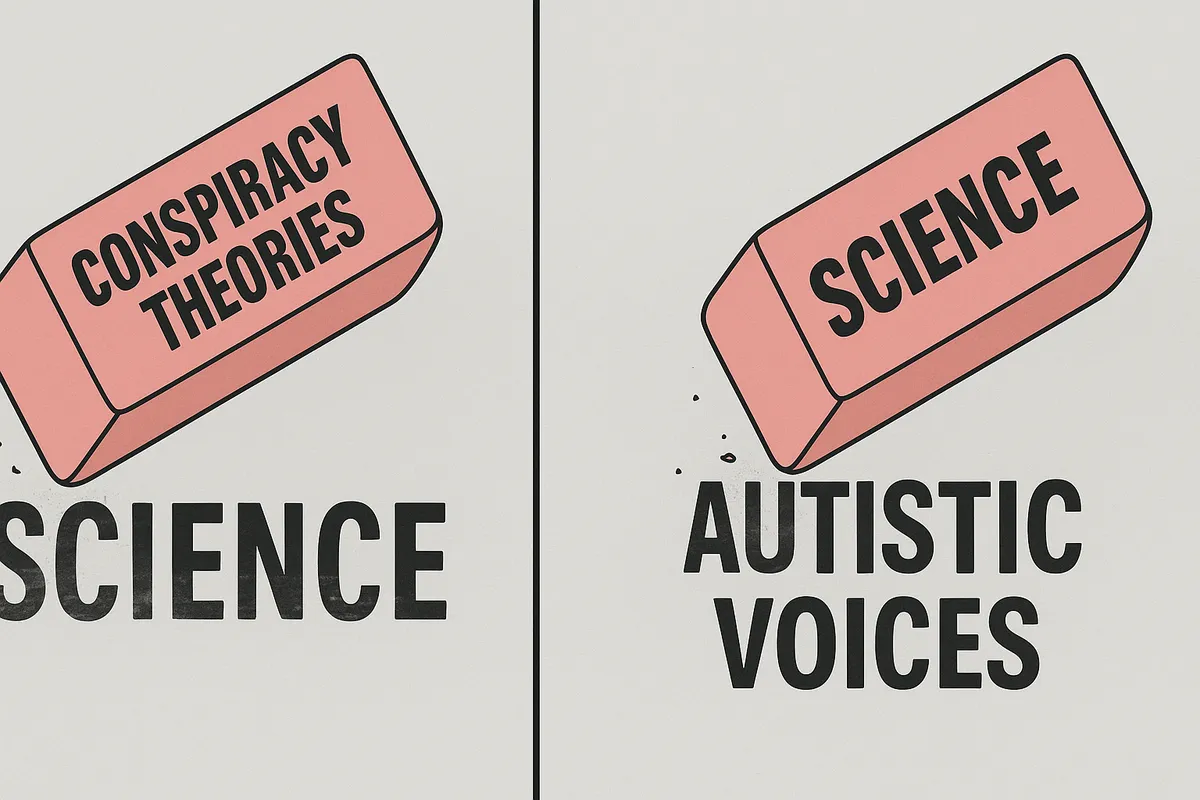Two Kinds of Erasure
 Every May, the brightest minds in autism research gather for the International Society for Autism Research (INSAR) conference. They present posters, accept awards, trade insights and frustrations — and often leave feeling like they’ve done something meaningful. This year, the uninvited guest at every table was Robert F. Kennedy Jr. — not in person, but as a shadow across the field.
Every May, the brightest minds in autism research gather for the International Society for Autism Research (INSAR) conference. They present posters, accept awards, trade insights and frustrations — and often leave feeling like they’ve done something meaningful. This year, the uninvited guest at every table was Robert F. Kennedy Jr. — not in person, but as a shadow across the field.
In a sharp new essay in The Atlantic, John Donvan and Caren Zucker interview researchers stunned and disheartened by Kennedy’s growing influence. As the newly appointed U.S. Secretary of Health and Human Services, Kennedy has declared his intention to “find the cause of autism,” citing toxins and vaccines and other long-debunked myths. He’s building a federally backed “data platform” that has parents frantically trying to scrub their kids’ medical records.
The autism research community is shaken. Scientists who’ve devoted decades to understanding autism’s complexity feel erased — flattened by Kennedy’s cartoon version of their work and dismissed by a public increasingly captivated by conspiracy. And they’re right to be outraged.
But here’s where the mirror turns.
For years, these same researchers have largely sidelined the voices of autistic people. They’ve constructed deficit frameworks that reduce us to collections of problems, behaviors and burdens. They’ve accepted funding to “discover the cause” while rejecting invitations to explore lived experience. The community they now feel exiled from? They helped build it with the door locked behind them.
Let’s be clear: Kennedy is not lifting up marginalized voices. He is not a champion for the autistic community. He’s a career provocateur using us as a rhetorical wedge — and endangering public health in the process.
But the scientists who rightly criticize him need to face a hard truth: their own legacy is one of exclusion, too.
They’re not wrong to be horrified. It’s just that many of us have been horrified for a lot longer.
We understand the frustration. To have your life’s work cast aside by a loud voice with a powerful platform — especially one who distorts the science you’ve spent decades advancing — cuts deep. It would be infuriating. And we don’t want to minimize that pain. But if this moment feels like erasure to you, please consider: that’s the exact experience many of us in the autistic community have had for generations. You feel sidelined by a system that won’t listen. So do we.
Maybe that’s the bridge. Maybe the mutual loss — of trust, of recognition, of respect — is where something new can begin. Not with blame. Not with shame. But with the question neither side has asked loudly enough: What could we do together if we finally listened to each other?